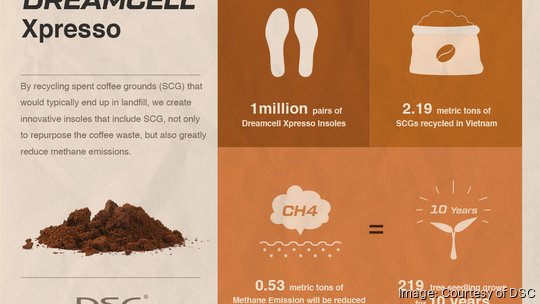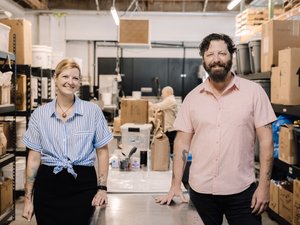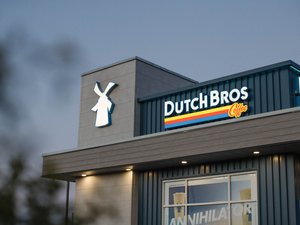
Sustainability is at the forefront of footwear innovation.
To that end, a local foam insole manufacturer recently introduced new recycled technology using waste from a morning cup of coffee. Dahsheng Chemical, or DSC, worked for nearly two years on its latest Dreamcell Xpresso, a foam technology made with 20% spent coffee grounds.
Using this waste that would otherwise go to a landfill, DSC says it can decrease the amount of fossil fuels and energy in the production process while still maintaining a lightweight foam built for performance and comfort.
DSC works with brands such as Nike, Adidas, Puma and Converse by providing them with the basic foam insoles of the footwear that consumers wear every day.
The company’s R/D and innovation office is in Portland at 240 N. Broadway, and most of the manufacturing is done in Vietnam, which is the second largest producer of coffee in the world. Jonathan Morris, DSC’s senior operations manager, said it made sense then to use waste from right in its factory’s back yards to make a holistically sustainable product.
“We want to use things that are locally available…where our production happens,” Morris said. “So for example, if we were doing all of our production in Germany, and having to bring in coffee grounds from Colombia or Brazil or Vietnam, then it's like, ‘OK, well, does that make a lot of sense?’”
More than 2 billion cups of coffee are consumed everyday around the world, and when the spent coffee grounds are sent to landfill, they can produce methane, which causes a greenhouse effect 28 times higher than carbon dioxide, according to DSC.
The toughest parts of the creation of Dreamcell Xpresso was ensuring the performance remains optimal and that the supply chain could remain stable, Morris said.
“If we promote this out to a Nike, or to Adidas, or a New Balance, and they want to do it at scale, do we have the supply chain in place to actually make it, to bring in the spent crop grounds in an amount that we can scale up the use of this foam?” Morris said.
Using spent coffee grounds in foam insoles is not a mainstream manufacturing practice, Morris said, and he hopes DSC’s use of them can be an example to others in the industry that sustainable innovations can be found everywhere.
“More importantly, especially in the sustainability space, we can't move the needle as much as it needs to be moved in climate change or sustainability alone,” Morris said. “So I think one of the good effects of this and going public with it and talking about more eco-friendly materials is that it will inspire others to do things like a biodegradable shoe.”





